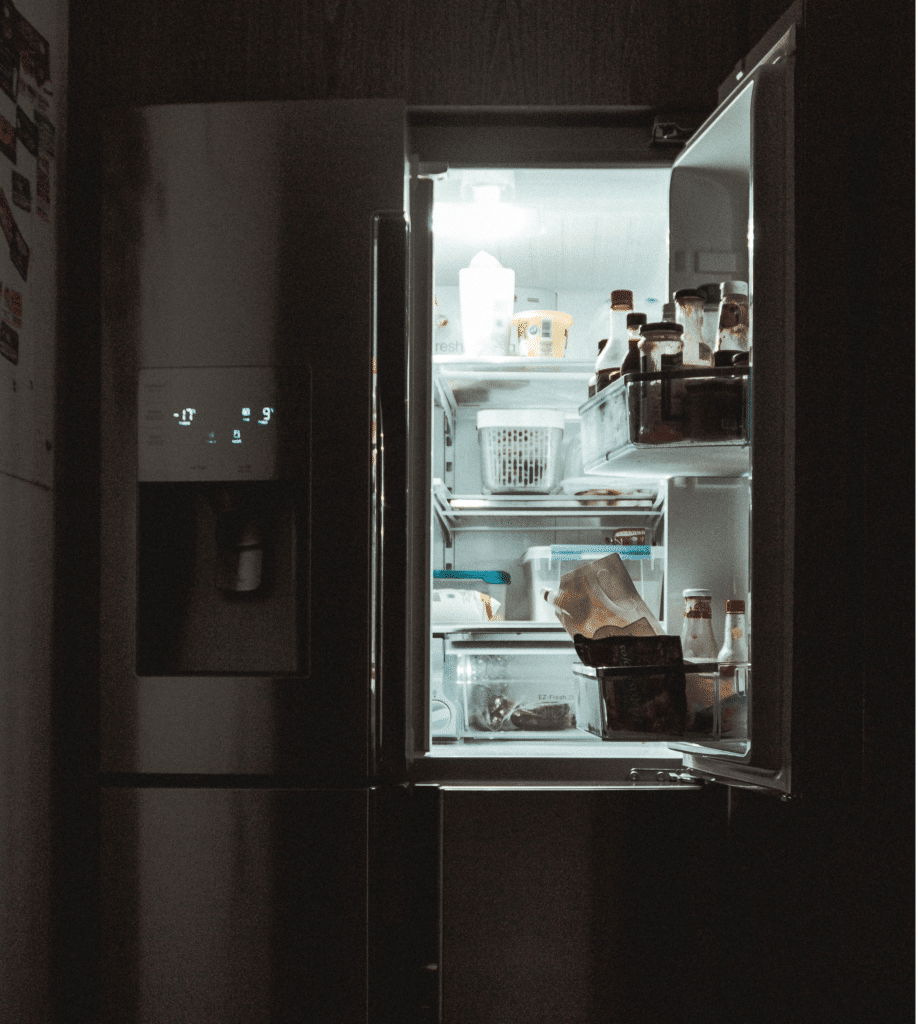
Do you think the fridge is talking to the delivery man about us?

As more and more appliances are shipped with IOT capability there are more and more opportunities for companies to gather data round our usage and preferences. My phone is already sulking with me because I cannot see the need for my music player to be able to listen to the songs itself via my mic.
Already our personal data collection devices are picking up conversations, keywords and preferences that it witnesses and passes back to HQ for utilisation in complex behavioural analytics engines to enable better targeted marketing and have a better understanding of to influence me as a consumer. So, I am paying my phone operating system manufacture to spy on me. Of course, coupled with the location data flow that you cannot turn off, it’s possible to gather a multitude of sensitive data from my phone usage.
At present, while everything is being transmitted by the phone, it should be possible if no difficulty to set your permissions to protect your personally privacy, even if you will get caustic comments to the effect of your phone may not work very well if you stand up to our bullying and refuse to allow access to YouTube player to listen to the music and any conversations, location marker (mind the door) or tv channel info in the immediate proximity.
But how can I do similar with the fridge. There is no screen to interface with. It speaks machine code and I speak East Belfast English. The privacy statement is hidden in the warranty pack with the shelves and ice tray. And yet the manufactures claim that the benefits of preventive maintenance and instant upgrades should be enough to make me accept this loss of privacy. And here we come to meet the 2 very different schools of thought around technology and data gathering. The manufacturer often has a burning belief that their legitimate interest in developing a better/creepier/more all encompassing product should trump my right to privacy, while I believe they ought mind their own business.
But in some amazing manner, the addition of information technology seems to change our ethical reasoning. 4 generations of my family have made use of refrigerators, but mine is the first generation who has been offer the super special interactive data gathering version. So, what’s changed to make this necessary? If the refrigeration industry has such a burning need to know about the contents of the machine, or how I interact with it, why for the last 100 years was there no requirement for the machine to come with an operator? Who checked the food going in or out, listened without comment to the conversations going on around the kitchen and made a discreet note as to whether you are watch RTE1 or listening to the radio? My patents and grandparents never required a fridge listener, and my grand-dad had the same fridge from 1949 until the mid-80s, so the old maintenance argument hardly stands up. So, what’s changed beyond the monetisation of data and the sheer arrogance of technologists who believe that listening to other folks private conversations using their own privately owned appliances in their private homes is an entitlement of the tech industry? Unfortunately, both the general consumer, from whom we all derive our living doesn’t like this and increasingly government won’t accept it either. Studies show that 50% of consumers believe that smart home technology reveals too much about your personal life and 51% IOT appliances compromise home security and can be easily hacked.
It is my belief that for some reason, when we throw new technology into the mix, we seem to lose our rational minds. I often have very strange tech conversations with companies, which would never occur in the ‘real’ world.
Inquirer: ‘We just sacked a guy and when we got his laptop back we found it logged into his personal Gmail account. Is it ok to read and copy his private emails?
Me: Hmm, did you sack him for leaking data?
Inquirer: No, he just didn’t come in to work a lot, and when he did he was useless.
Me: I see. If he left his personal diary in his desk, would you ask if you could read it?
Inquirer: Certainly not, that would be rude.
Me: Does that help answer the question?
Inquirer: Oh, I never thought of it that way.
And there you have the problem. Technology makes us believe that old behaviours, old morals should change to fit in with the new paradigm, without understanding that there is nothing new in this world, and that a simple change of packaging or medium doesn’t actually change the fundamental expectations of people and their privacy!


